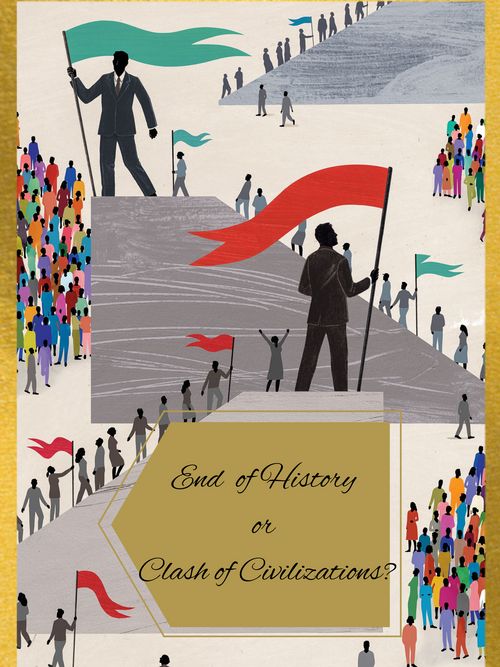The End of History or the Clash of Civilizations?
Mar 02, 2022 · 2 mins read
0
Share

In 1991, as the Soviet Union fell apart, Francis Fukuyama declared the “end of history”. By this, he did not mean the end of events or the study of the past, but the end of an ideological war between communism and liberalism, with the latter emerging victorious.
Save
Share
Writing around the same time, Samuel Huntington read the winds of change differently. He agreed that an ideological war had ended, but he believed one based on cultural fault lines had begun.
Save
Share
In his book The End of History and the Last Man, Fukuyama did not say that communist nations wouldn’t emerge again. He argued that the fall of the USSR symbolized the defeat of socialism as a legitimite force. Liberal democracy would become the norm and socialism the anomaly.
Save
Share
Drawing upon both economics and philosophy, he argues that only liberalism answered fundamental desires of humanity: material wealth and recognition. The modern welfare state overcomes capitalism’s contradictions, homogenizes ideas and values, and promotes peace and stability.
Save
Share
Huntington, on the other hand, was an avowed conservative and realist. He believed liberal globalization and the rise of non-Western entities has facilitated the erosion of nation-states. Religion, with its ability to draw loyalty from the masses, was posed to be its replacement.
Save
Share
In his book The Clash of Civilizations, Huntington specified 9 “civilizations,” the highest category of identity: Western, Orthodox, Islamic, Latin American, African, Sinic, Hindu, Buddhist, and Japanese. Wars will be waged along these boundaries rather than national ones.
Save
Share
In the aftermath of 9/11, Huntington’s thesis seemed prophetic, despite how illogical some of his categorizations are. Today’s identity politics have made the traditional nation-state political compass irrelevant.
Save
Share
However, conflicts need not always be along civilizational lines. American opposition to China’s rise is not based on cultural differences but on ideology and power. Otherwise, South Korea would have been Beijing’s ally rather than Washington’s.
Save
Share
The viewpoints of Fukuyama and Huntington need not be clashing and can synthesize. For example, Western liberal culture is still seen as the norm and shapes values, including the system of international law that many non-Western nations adhere to.
Save
Share
Bottom Line. In a world where identity builds loyalty but legitimacy still lies with the liberal order, you could argue both Huntington’s and Fukuyama’s theses have been proven right. However where does the future lie? It may depend on your timeframe.
Save
Share
0